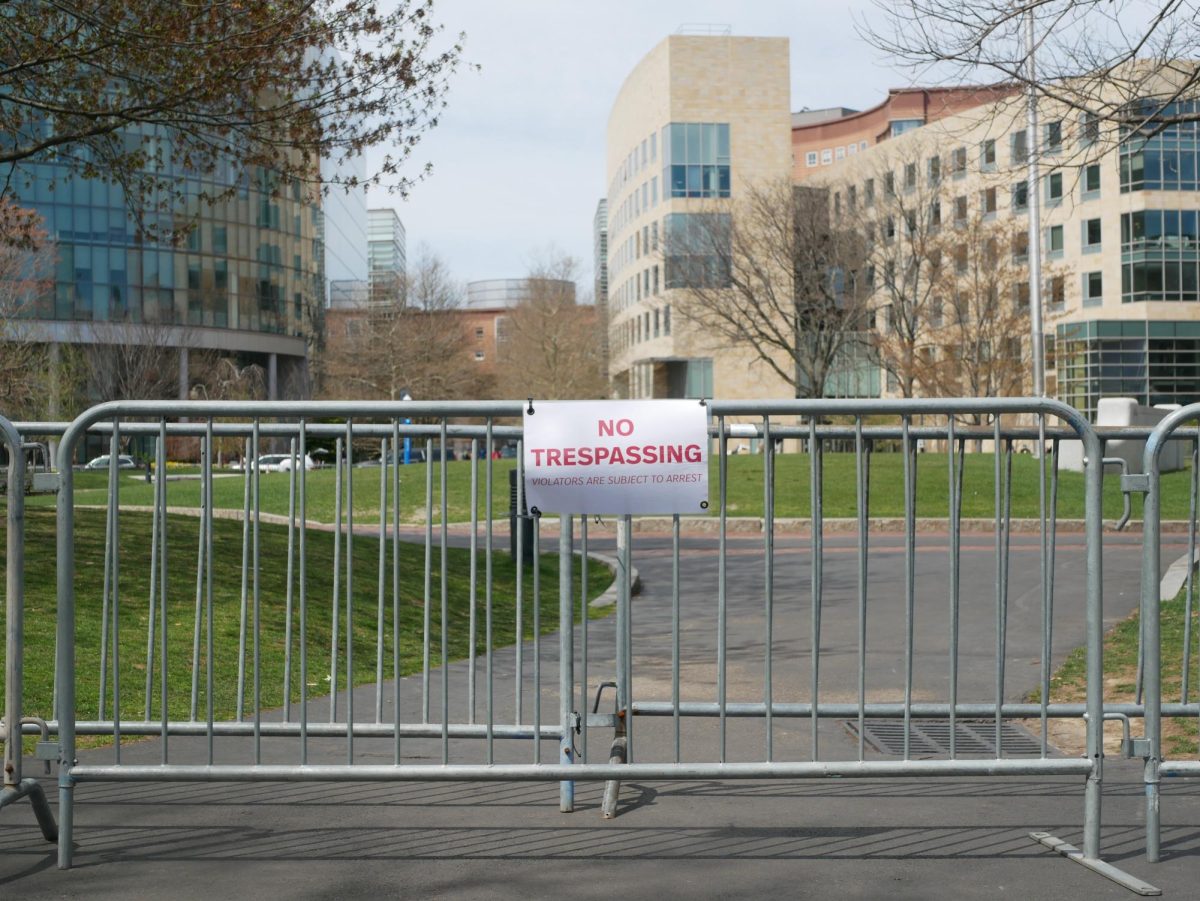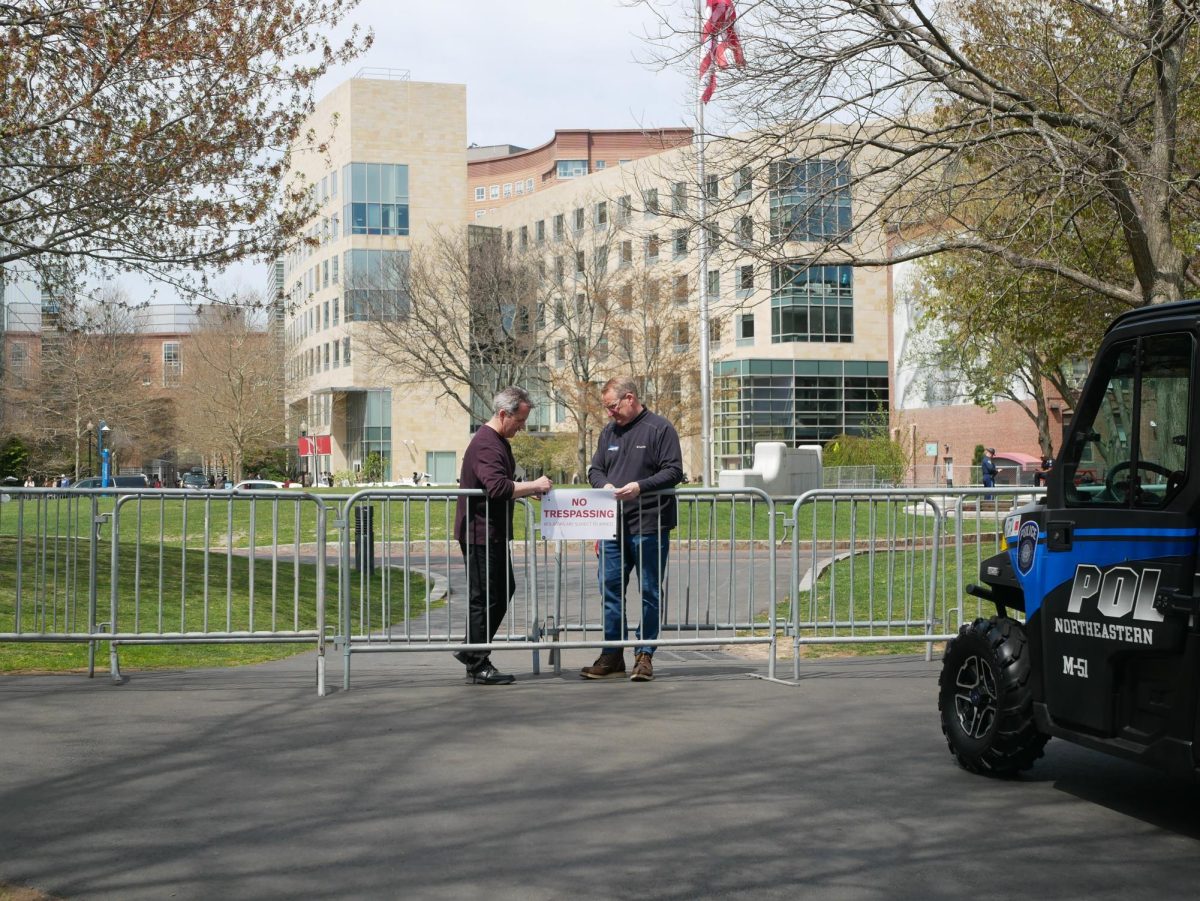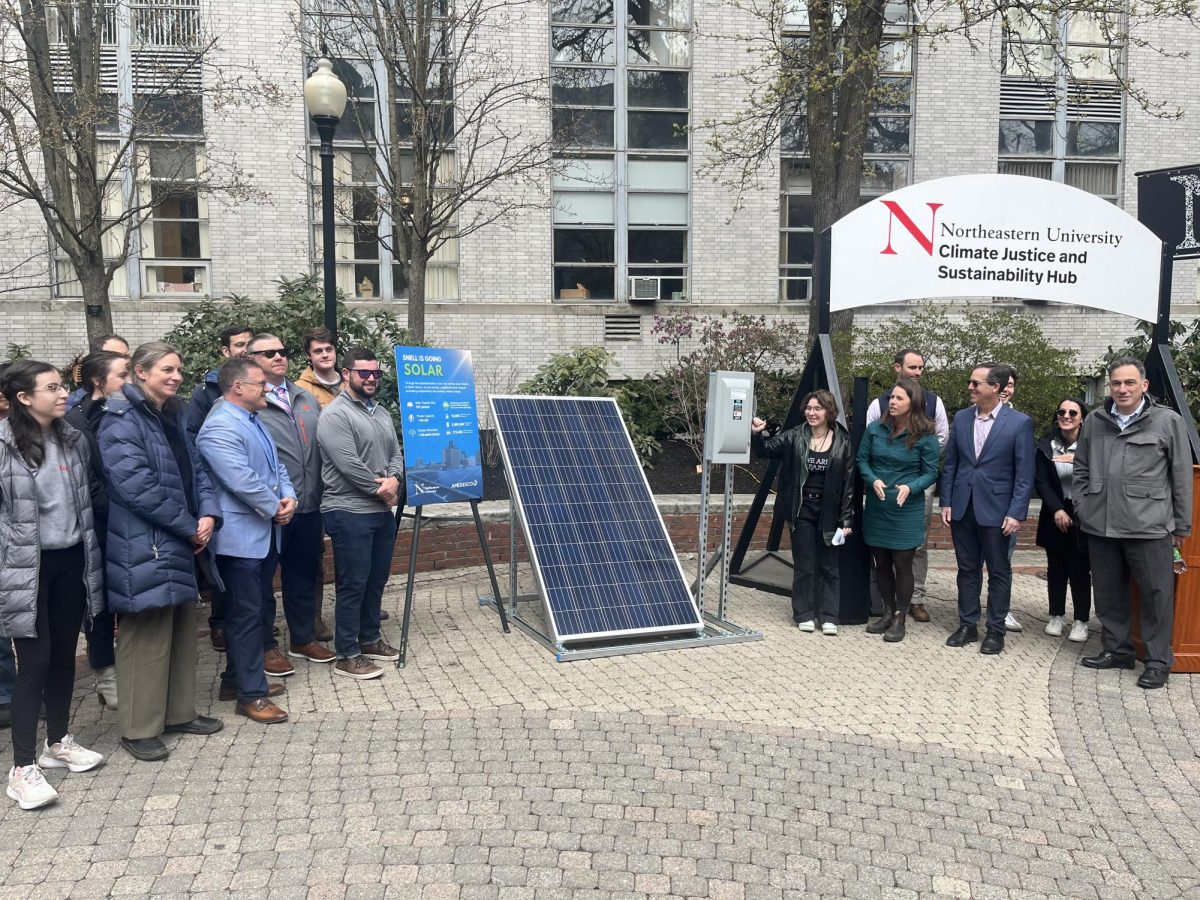By Nicole Haley
Northeastern University Campus Against War and Racism (NUCAWR) hosted an antiwar teach-in Tuesday night to discuss what an attack on Iraq would mean and what can be done to prevent it.
“The last time we waged war against Iraq, they set fire to Kuwaiti oil fields. If they do this again, the United States economy would be in deep recession,” said Economics Professor M. Shahid Alam, who spoke about the economic repercussions of a war.
Professor Alam’s son, a sophomore political science major, spoke about another economy that he feels has been devastated by what he deems an already existing war.
“[U.S. imposed sanctions] devastated the Iraqi people and strengthened Saddam,” Junaid Alam said.
Responding to the group’s discussion about the right of the Iraqi people to have self-determination, Junaid Alam said that the “sanctions make it so that Iraqi people have to depend on Saddam’s government to survive; ending the sanctions is the key.”
Terry Haywoode, KPEGP program coordinator for the School of Education,, stressed that a war in Iraq would have ongoing global repercussions.
“Once you let loose the dogs of war, you have no idea what will happen. The government makes it sound as though the prospect of war is finite — it’s not,” Haywood said.
In questioning the source of finances for a war, Haywood told the students that resources for the war would be coming from “your education and my social security.”
Joe Knott, a middler music major, spoke about the possible role that imperialism and oil play in the impending war.
Noting that Iraq is not the only nation that has been in violation of United Nations regulations, and pointing to Israel, which receives much U.S. support, Knott said that an attack against Iraq would say one thing: “We have the right to determine who has to comply with U.N. guidelines.”
Knott proposed that the singling out of Iraq might have something to do with the fact that Iraq has the world’s second largest supply of oil.
The panel also addressed the issue of what would happen if the U.S. overthrows Hussein’s regime. Professor Alam said that the war would be “phase one of a dual mission.”
Alam said that in light of the current economic situation in the U.S. and what the costs of a war would do to deteriorate that, “it is unlikely that the tens of billions of dollars that would be needed to rebuild Iraq would be available.”
Alam also questioned the ability to build a successful democracy in the Middle East, noting that this still has not happened since the war in Afghanistan, where the war ended in January 2002.
Acknowledging the global protests against a war in Iraq, Haywood said that activists hold important power to express opinions against the war and that organizing is very important.
“We have the resources to give everyone a decent life and end all wars. So why aren’t we doing that?” Haywood said, quoting a sign from the antiwar protests.
Haywood asked the students, “What are you going to do to bring us closer to that time?”
Some students posed concerns that people are not prepared to sacrifice time from their daily lives to become actively involved in the antiwar movement.
“If you’re not interested in the war, the war is interested in you,” Junaid Alam said. “Bush will make sure you make sacrifices.”
Jared McBride, a junior history major, said that organizing and going to meetings can give people comfort and a feeling that they have some say in what is going on around them.
“It feels a lot better to be with people and have a sense of unity in a group than it does to be sitting home alone waiting for the next level warning,” McBride said.
NUCAWR will host another antiwar teach-in on Wednesday, March 5, at 6 p.m. in 97 Snell.










